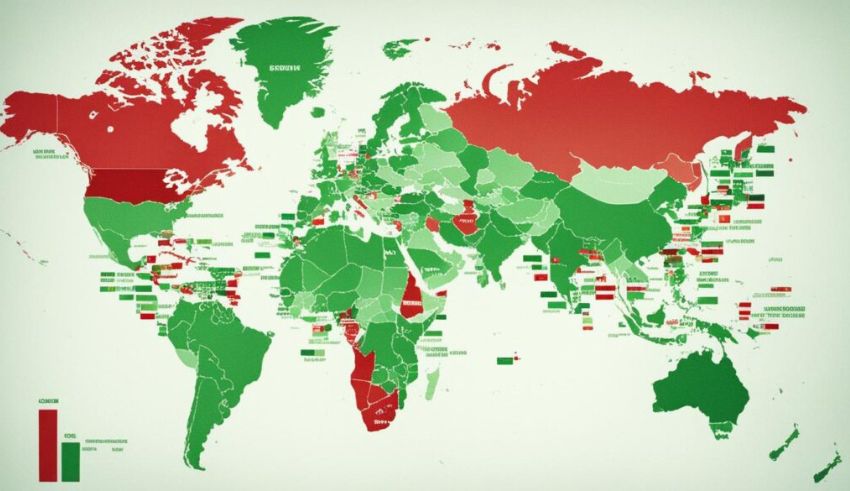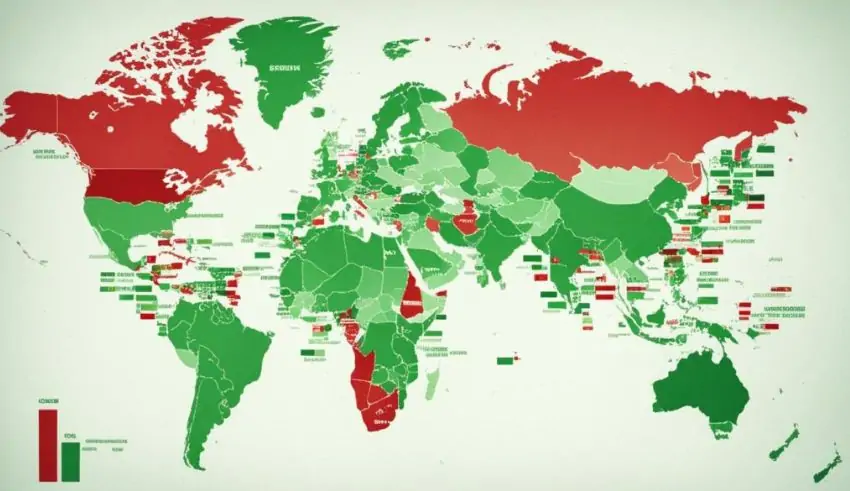

(C) Zac Johnson
Corruption is a global problem that affects the lives of millions of people. Corruption can be defined as the abuse of entrusted power for private gain, and it can take many forms, such as bribery, embezzlement, nepotism, fraud, extortion, and money laundering. Corruption undermines democracy, human rights, economic development, and environmental protection, and it erodes public trust in institutions and leaders.
According to the latest report by Transparency International, a global civil society organization that monitors and ranks countries based on their perceived levels of corruption, the most corrupt continent in 2024 is Africa, followed by Asia, South America, Europe, North America, and Oceania. The report, which is based on surveys and expert assessments, assigns a score from 0 (highly corrupt) to 100 (very clean) to each country, and then ranks them from the lowest to the highest score. The report also identifies the main drivers and challenges of corruption in each region, and provides recommendations for improvement.
Africa remains the most corrupt continent in 2024, with an average score of 32 out of 100, and 39 out of the 54 countries scoring below 50. The report highlights that corruption in Africa is fueled by weak governance, political instability, civil conflicts, poverty, inequality, and lack of accountability. The report also notes that corruption in Africa has worsened due to the COVID-19 pandemic, which has exposed the gaps and failures in the health, education, and social protection systems, and has created opportunities for corruption and mismanagement of public funds and resources.
The most corrupt country in Africa, and in the world, is Somalia, with a score of 9 out of 100, followed by South Sudan (12), Sudan (16), Equatorial Guinea (17), and Libya (18). These countries are characterized by violent conflicts, authoritarian regimes, human rights violations, and lack of basic services and infrastructure. The report urges the international community to support these countries in their efforts to end violence, restore peace, and build inclusive and accountable institutions.
The least corrupt country in Africa is Seychelles, with a score of 66 out of 100, followed by Botswana (60), Cabo Verde (58), Rwanda (54), and Namibia (52). These countries have shown some progress in fighting corruption, by implementing anti-corruption laws and policies, strengthening oversight and transparency mechanisms, and promoting civic participation and social justice. The report encourages these countries to continue their reforms and to address the remaining challenges, such as corruption in the private sector, political financing, and illicit financial flows.
Asia is the second most corrupt continent in 2024, with an average score of 45 out of 100, and 31 out of the 49 countries scoring below 50. The report points out that corruption in Asia is driven by authoritarianism, populism, nationalism, and militarism, which have undermined democracy, human rights, and the rule of law in many countries. The report also warns that corruption in Asia has increased due to the COVID-19 pandemic, which has exposed the weaknesses and vulnerabilities in the governance, health, and social systems, and has enabled corruption and abuse of power by the elites and the powerful.
The most corrupt country in Asia is North Korea, with a score of 14 out of 100, followed by Afghanistan(15), Syria (15), Yemen (15), and Turkmenistan(16). These countries are plagued by war, violence, repression, and humanitarian crises, and have little or no space for civil society and independent media. The report calls for the international community to support these countries in their efforts to end hostilities, protect human rights, and provide humanitarian assistance.
The least corrupt country in Asia is New Zealand, with a score of 88 out of 100, followed by Singapore (85), Japan (74), Hong Kong (72), and Taiwan (71). These countries have demonstrated strong performance in fighting corruption, by establishing effective and independent institutions, enforcing anti-corruption laws and regulations, ensuring public access to information and participation, and fostering a culture of integrity and accountability. The report advises these countries to maintain their high standards and to address the emerging challenges, such as corruption in the digital sphere, foreign interference, and environmental degradation.
South America is the third most corrupt continent in 2024, with an average score of 46 out of 100, and 10 out of the 12 countries scoring below 50. The report reveals that corruption in South America is linked to political polarization, social unrest, economic crisis, and institutional fragility, which have eroded public confidence and trust in the governments and the leaders. The report also indicates that corruption in South America has escalated due to the COVID-19 pandemic, which has aggravated the social and economic inequalities, and has facilitated corruption and impunity in the management and distribution of the vaccines and the relief funds.
The most corrupt country in South America is Venezuela, with a score of 15 out of 100, followed by Guyana (41), Paraguay (42), Bolivia (43), and Brazil(44). These countries are marked by political instability, social conflict, economic decline, and institutional decay, and have faced serious allegations and scandals of corruption and misappropriation of public resources. The report urges these countries to restore democratic governance, strengthen judicial independence, and enhance civil society oversight and participation.
The least corrupt country in South America is Uruguay, with a score of 71 out of 100, followed by Chile (67), Argentina (49), Colombia (48), and Peru (48). These countries have shown some improvement in fighting corruption, by adopting anti-corruption reforms and measures, improving public service delivery and accountability, and fostering social dialogue and cooperation. The report encourages these countries to consolidate their achievements and to tackle the remaining issues, such as corruption in the political parties, the private sector, and the security forces.
OpenAI's new image creation option on ChatGPT attracted many users in a short time. ChatGPT achieved its one million user…
Yuki Tsunoda has targeted a dream podium at his home Japanese Grand Prix following his surprise elevation to Red Bull.…
Finally, it is out! Tom Holland will return to the red and blue suit as Marvel formally launches the title…
Turkish music lovers and the whole entertainment world on Sunday night were put in shock by the unexpected passing of…
The Senior Asian Wrestling Championship 2025 held in Amman closed with an exhilarating finale for India. The freestyle wrestling contingent…
Having been aired in Japan, the second season of Shangri-La Frontier has just been completed, and people are already hashtagging…
This website uses cookies.
Read More